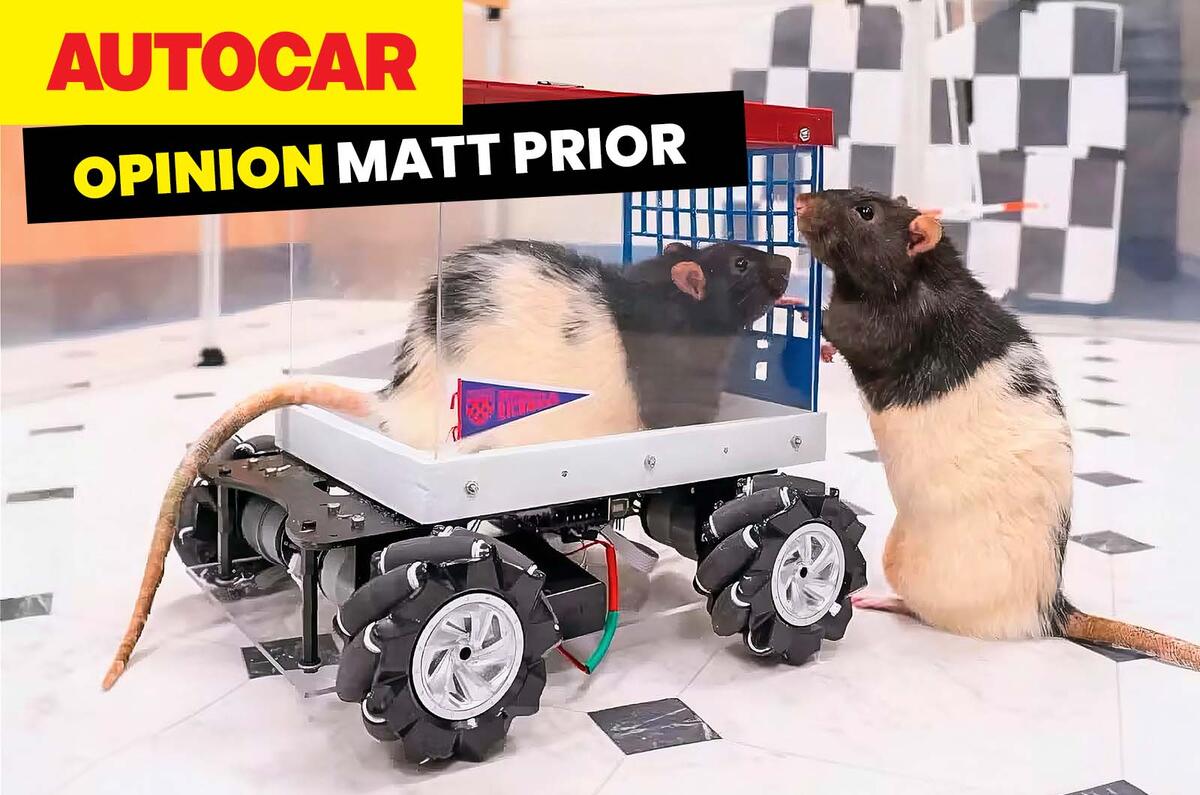For those who fear that general enthusiasm for driving is in decline, I have positive news: it’s actually so great that even rats enjoy it.
Kelly Lambert, a professor of behavioural neuroscience at the University of Richmond in Virginia (who attaches far more academic and intellectual rigour to her research than I will to interpreting it – soz), found in 2019 that rats could learn to drive little cars to reach a treat (a Froot Loop, since you’re asking).
Rats who were “housed in rich environments”, with toys and space and companions, more quickly learned to drive cars than those housed in regular cages.
Having initially learned to drive forwards in simple cars made from plastic cereal containers by grasping a wire acting as an accelerator, the rats were put into more advanced cars and “before long they were steering with surprising precision to reach a Froot Loop treat”, Lambert wrote for the excellent news website The Conversation last week.
Her research hasn’t stopped. When she walked into the lab during summer 2020, “the three driving-trained rats eagerly ran to the side of the cage, jumping up like my dog does when asked if he wants to take a walk”, she wrote.
“Had the rats always done this and I just hadn’t noticed? Were they just eager for a Froot Loop, or anticipating the drive itself? Whatever the case, they appeared to be feeling something positive – perhaps excitement and anticipation.”
I think I know this feeling when I return to long-stay parking at the airport.
The study, I should say, wasn’t exactly about driving but about positive emotions in animals.
In tests to measure rodent optimism, “preliminary results suggest that rats required to wait for rewards show signs of shifting from a pessimistic cognitive style to an optimistic one”. Such rats perform cognitive tasks better and solve problems more boldly.
Lambert’s lab has linked this research with its studies into ‘behaviourceuticals’ – a term suggesting experiences can alter brain chemistry like drugs do.
“Previous work with lab rats has shown that rats pressing a bar for cocaine – a stimulant that increases dopamine activation – already experience a surge of dopamine as they anticipate a dose of cocaine,” she explained.
And if you think that lab rats are having all the fun, driving around for sweet treats and getting caned off their tits, maybe they deserve a break.
“In a study that wouldn’t be permitted today, [neuroscientist Curt Richter] made rats swim in glass cylinders filled with water, eventually drowning from exhaustion if they weren’t rescued,” Lambert continued.







Join the debate
Add your comment
Means to an end?, like most animals they can be trained,conditioned to a degree to respond to certain stimuli,and like humans animals have personalities so some will not respond if they can't be bothered for whatever reason.